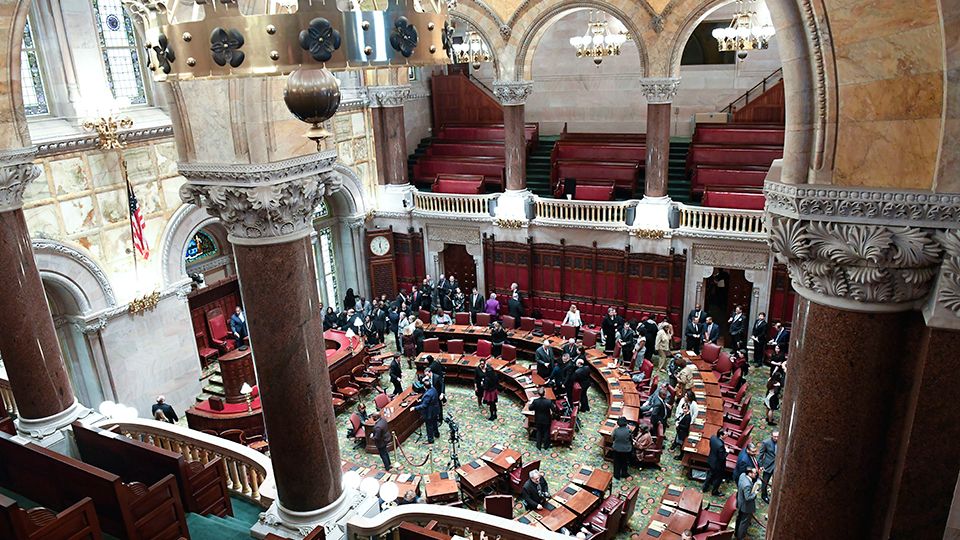New York state lawmakers finalized the passage of a $229 billion budget Tuesday night, a month after it was initially due.
The Democratic-led houses of the state Legislature and Gov. Kathy Hochul agreed to a spending plan that will boost direct aid to schools by more than $2 billion, fund mass transit in the New York City metropolitan region, make changes to the state's bail law and raise the minimum wage in the coming years to $17 and then index it to the rate of inflation.
The budget will also end the use of natural gas hookups and appliances in new construction in the coming years while also boosting funding for hospitals and nursing homes.
The agreement was a hard-fought win for Hochul and her fellow top Democrats. Lawmakers were hesitant to make changes to the law curtailing cash bail requirements. They also did not want to expand charter schools; ultimately agreeing to allowing 14 new charter schools in New York City.
Still, lawmakers were able to secure a series of victories in the state budget while also rejecting a plan by Hochul to expand housing in the state, which is expected to continue to be negotiated and debated in the coming weeks.
"I would say when you take out some of the policy stuff, I think this checked a lot of boxes on the things that the members of the Assembly support. Maybe not at the levels the members would have liked, but I would say probably this might be the best non-pandemic budget I've seen in my 23 years in the Assembly," Speaker Carl Heastie said.
Despite the month-long slog to get to a deal, top Democrats downplayed any tensions. Hochul appeared with her top aides, but not legislative leaders to announce the initial deal last week.
"It's funny how these things work," Senate Majority Leader Andrea Stewart-Cousins said, adding she had received a heads-up phone call about the announcement of the deal. "Sometimes, it is what it is."
Fiscal watchdogs, however, raised concerns with the final budget agreement, especially with the lack of an agreement on housing as well as growing concerns over the broader economy.
Citizens Budget Commission President Andrew Rein in a statement criticized the acceleration of state spending in the budget and a projected $5 billion budget gap next year.
"Overall, the budget weakens the State’s financial footing and does not include the governor’s bold, beneficial proposals to address the housing production and affordability crises. Increasing the State’s fiscal instability risks New York’s attractiveness to residents and businesses and increases the chance of future massive program cuts or economically harmful tax increases," Rein said. "New York needs to be both affordable and stable; this budget does not take the steps needed to get there."
Progressives, too, found fault in the budget's shortcomings on issues like addressing the cost of living for low-income New Yorkers.
"Gov. Hochul had the opportunity and responsibility to tackle the affordability crisis head-on by protecting families against unconscionable rent hikes, increasing the minimum wage to a livable wage, and raising taxes on the wealthiest New Yorkers so we can invest in our communities," said Sochie Nnaemeka, the director of the Working Families Party. "With strong Democratic majorities in both Houses, it’s unacceptable that this year’s budget fails to provide long-awaited relief to working New Yorkers."



